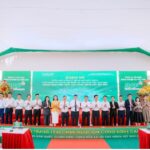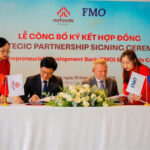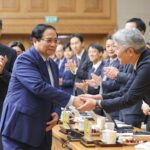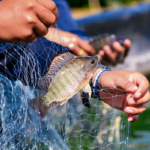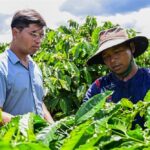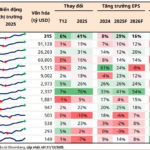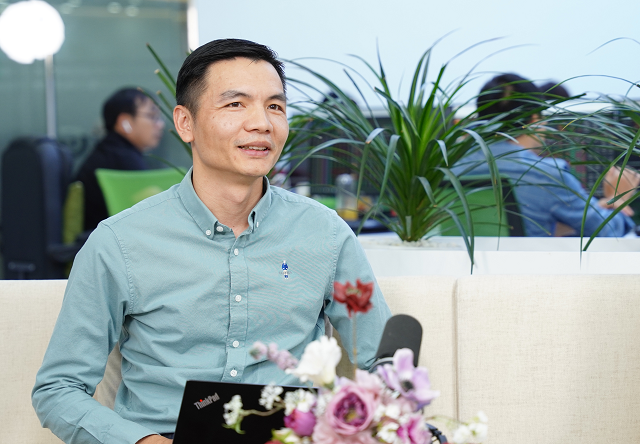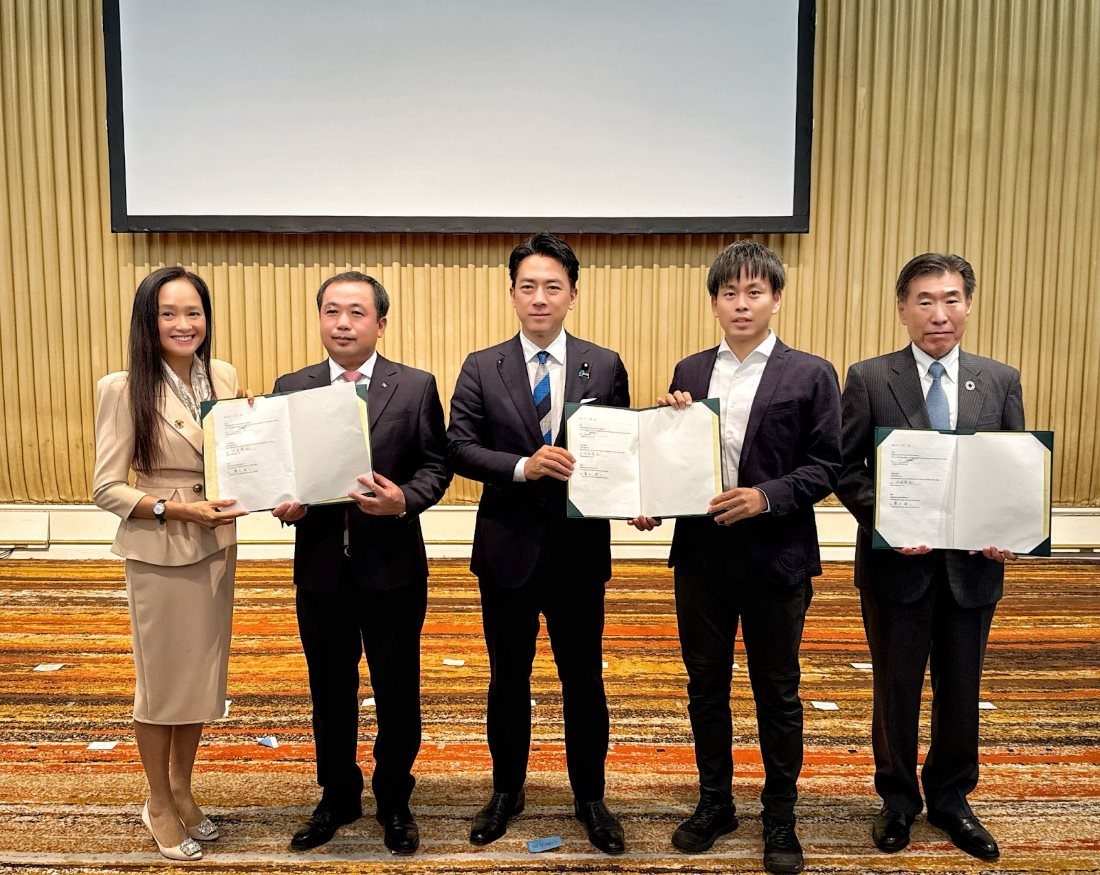
On September 4th, as part of the Vietnam-Japan Public-Private Partnership Forum, PAN Group signed a cooperation agreement with two Japanese partners – AGRI SMILE Company and Mitsubishi Research Institute (MRI).
The purpose of this collaboration is to foster sustainable agricultural value chain development through the joint effort of implementing trials of biological preparations from AGRI SMILE (Japan) in Vietnam.
By utilizing these biological preparations, the partners will establish green and sustainable farming practices, aiming to reduce greenhouse gas emissions, nourish the soil, and conserve natural resources and biodiversity.
PAN Group, AGRI SMILE, and the Mitsubishi Research Institute will jointly undertake a project to test AGRI SMILE-produced biostimulants in PAN Group’s raw material regions. This will assess the nutrient absorption and heat tolerance of crops, particularly rice. They will also initiate the necessary procedures to distribute the products in Vietnam.
Biostimulants are biological products applied to plants or soil to stimulate their natural physiological processes. They enhance nutrient absorption, resilience to adverse factors (temperature, drought, salinity, pests, and diseases), and ultimately improve crop yield and quality. Unlike conventional fertilizers that directly provide nutrients or pesticides that control pests, biostimulants work by boosting the overall health and resilience of the plants.
These products often originate from natural sources such as seaweed extracts, amino acids, beneficial microorganisms, humic/fulvic acids, or recycled agricultural and food by-products. By strengthening crop health, enhancing nutrient use efficiency, and improving resilience, biostimulants help crops better withstand the growing challenges posed by climate change, including drought, salinity intrusion, and heatwaves. Major crops like rice, corn, and vegetables stand to benefit significantly from the application of biostimulants.
This green technology is expected to play a crucial role in reducing agricultural chemicals, increasing productivity, enhancing climate resilience, and meeting international standards. Biostimulants present a significant opportunity for international cooperation in technology transfer, testing, and commercialization, with Japan being a key strategic partner in this regard.
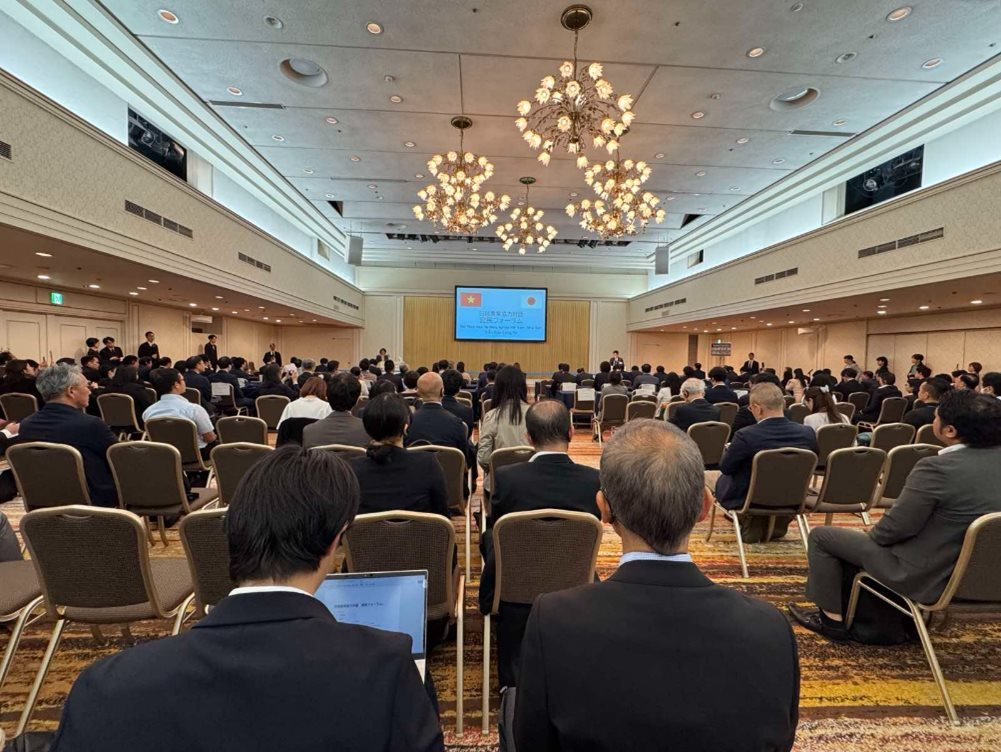
The 6th Vietnam-Japan Public-Private Partnership Forum was held in Tokyo, Japan
Speaking on the sidelines of the forum, Ms. Nguyen Thi Tra My, CEO of PAN Group, shared: “Japan is not only an important partner for many Vietnamese businesses, but it is also a market that affirms product quality. Collaboration in Japan brings immense value to PAN Group, as 30% of our export revenue comes from the Japanese market, proving that only high-quality Vietnamese products are accepted in such a demanding market.”
Japan is currently the strategic market and the largest export destination for PAN Group. In 2024, PAN Group achieved consolidated revenue of VND 16,182 billion (approximately USD 650 million), with exports to Japan reaching nearly USD 100 million, accounting for 33% of the Group’s total export turnover. The main export items include shrimp, pangasius, seeds, dried fruits, confectionery, and flowers.
Given the growing demand for rice in the Japanese market, PAN Group is also actively promoting the export of packaged rice under its brand to Japan. Vinaseed, a subsidiary of PAN Group, has been exporting rice to Europe, Australia, Russia, Mongolia, the UK, Australia, Canada, and is one of the largest rice brand suppliers in Vietnam.
“High-Tech Pig Farm, Gia Hanh, Breaks Ground in Quang Tri: BAF Vietnam’s Latest Venture”
The Gia Han high-tech pig farm project is a significant venture with a total investment of 2,000 billion VND. With an impressive scale of 15,000 sows and 450,000 pigs for meat production, it stands as the largest-scale project undertaken by BAF to date.
“Nafoods Secures $20 Million in Funding from Dutch Bank”
Speaking at the signing ceremony, representatives from FMO praised the strong ESG standards of Nafoods Group Joint Stock Company (HOSE: NAF) and affirmed that the $20 million financing is just the beginning of a long-term partnership to develop a sustainable and green agriculture value chain in Vietnam.
Unlocking Urban Potential: A Vision for a Smart Northern Hanoi City and Beyond
“Japanese enterprises have proposed a collaborative effort with Vietnam to expedite and facilitate the development of various projects within the country. These ventures include metropolitan railway systems in Hanoi and Ho Chi Minh City, infrastructure advancement in the Mekong Delta, and the establishment of a smart city in Northern Hanoi. With a shared vision of progress and mutual benefit, these proposals aim to strengthen the bond between the two nations and pave the way for a prosperous future.”
The Untapped Goldmine of Abandoned Fields: Farming a Multi-Million Dollar Delicacy Sought by the US and Russia
This Vietnamese specialty is a hit in the US and Russia, where its unique appeal has captured the hearts (and taste buds) of many.
The New 117 Million Ton Resource Trove: A Massive Windfall Awaits if Exports Take Off
The agricultural sector emits nearly 117 million tons of CO2 equivalent. This presents an opportunity to tap into a new resource reservoir by adopting farming practices that reduce emissions. By embracing sustainable methods, not only can we mitigate our environmental footprint, but we can also explore the potential of carbon credit exports, given the high demand for this commodity.

